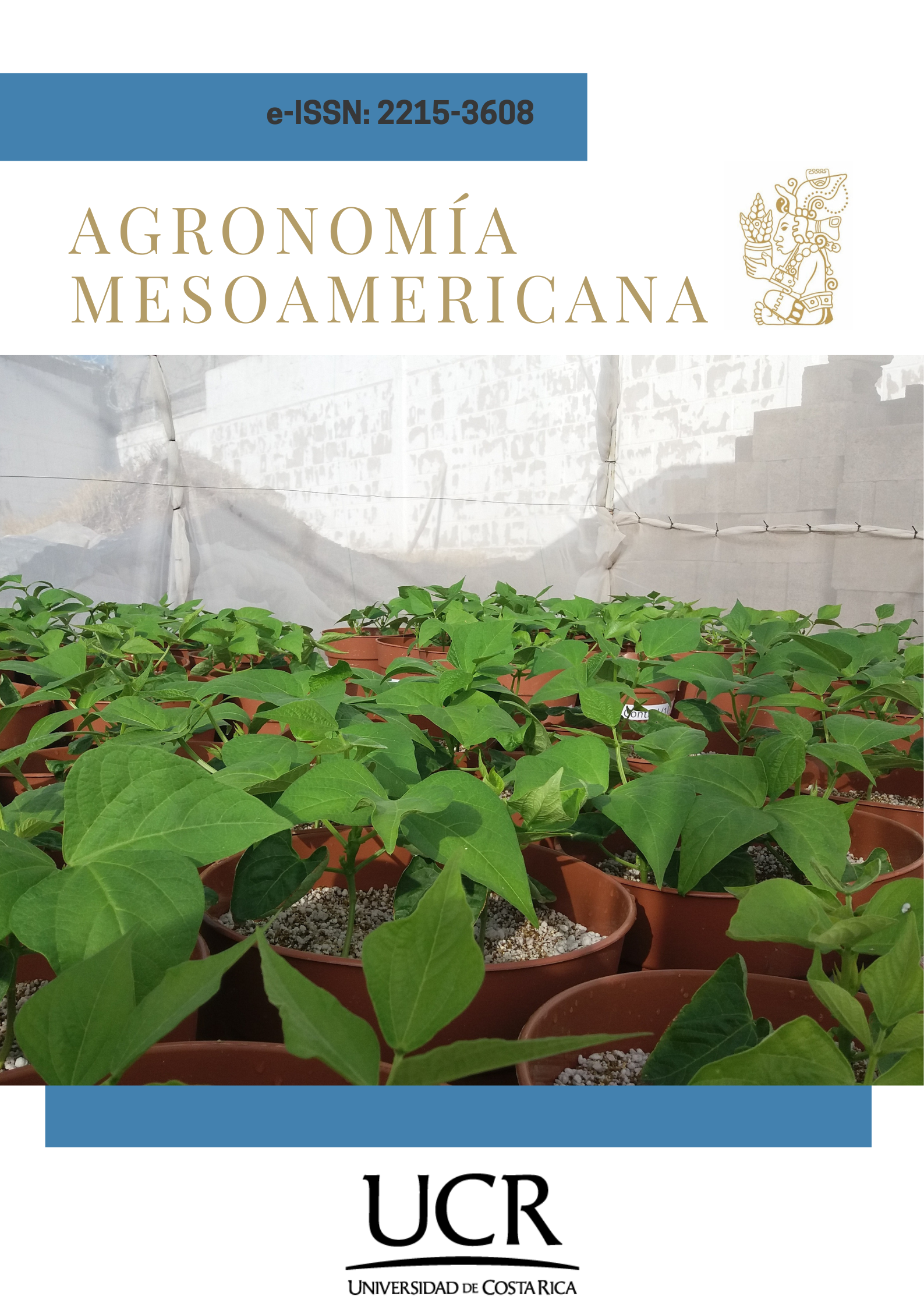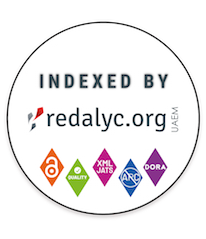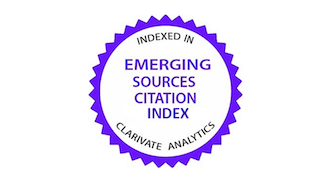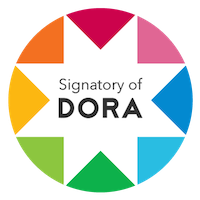Application of zinc nitrate plus chitosan favors carbon assimilation and bean (Phaseolus vulgaris L.) yield
DOI:
https://doi.org/10.15517/am.2024.58742Keywords:
phootosynthetic activity, biostimulants, chlorophyll, Phaseolus vulgarisAbstract
Introduction. A novel alternative to increase productivity and nutrient utilization is the use of biostimulants such as chitosan, which is a product derived from the exoskeleton of crustaceans and has properties that promote growth and nutrition in crops. Objective. To evaluate the application of zinc nitrate (NZN) plus chitosan on biomass, yield, photosynthetic activity and photosynthetic pigments in green bean plants (Phaseolus vulgaris L.) for consumption of the fresh pod. Materials and methods. The experiment was conducted in a shade house located at the Centro de Investigación en Alimentación y Desarrollo (CIAD), in Delicias, Chihuahua, Mexico, during the months of August to October 2021. A completely randomized design with eight treatments and four replications was used, where zinc nitrate was applied via foliar at doses of 0, 25, 50 and 100 ppm with and without chitosan at a dose of 50 ppm. Biomass accumulation, yield, in vivo nitrate reductase enzyme activity, photosynthetic activity using Licor 6400 equipment, photosynthetic pigment content, and foliar and fruit zinc concentration were evaluated. Results. The results obtained indicated increases for the biomass variable when applying doses of 50 ppm NZN and 25 and 50 ppm NZN plus chitosan of 37.76 %, 42.39 % and 40.61 %, respectively in relation to the control without application, while for yield an increase of 45.22 % was obtained when NZN plus chitosan was applied at a dose of 25 ppm. The application of chitosan individually did not show statistical differences. Conclusions. The application of zinc nitrate plus chitosan increased total biomass production, yield and zinc content in fruit. It also favored photosynthetic activity and parameters related to photosynthetic pigments.
Downloads
References
Abu-Muriefah, S. S. (2013). Effect of chitosan on common bean (Phaseolus vulgaris L.) plants grown under water stress conditions. International Research Journal of Agricultural Science and Soil Science, 3(6), 192–199.
Almeraya-del Valle, É. V., & Sánchez-Quintanar, E. (2015). Adaptaciones fotosintéticas en las plantas para mejorar la captación del carbono. Ciencia, 79, 74–79. https://amc.edu.mx/revistaciencia/images/revista/66_4/PDF/AdaptacionesFotosinteticas.pdf
Bautista-Diaz, J., Cruz-Alvarez, O., Hernández-Rodríguez, O. A., Sánchez-Chávez, E., Jacobo-Cuellar, J. L., Preciado-Rangel, P., Ávila-Quezada, G. D., & Ojeda-Barrios, D. L. (2021). Zinc sulphate or zinc nanoparticle applications to leaves of green beans. Folia Horticulturae, 33(2), 365–375. https://doi.org/10.2478/fhort-2021-0028
Behboudi, F., Tahmasebi Sarvestani, Z., Kassaee, M. Z., Modares Sanavi, S. A. M., Sorooshzadeh, A., & Ahmadi, S. B. (2018). Evaluation of chitosan nanoparticles effects on yield and yield components of barley (Hordeum vulgare L.) under late season drought stress. Journal of Water and Environmental Nanotechnology, 3(1), 22–39. https://doi.org/10.22090/jwent.2018.01.003
Broadley, M., Brown, P., Cakmak, I., Rengel, Z., & Zhao, F. (2012). Function of nutrients: micronutrients. In P. Marschner (Ed.), Mineral nutrition of higher plants (pp. 191–248). Academic Press. https://doi.org/10.1016/B978-0-12-384905-2.00007-8
Chávez-Simental, J. A., & Alvarez-Reyna, V. D. P. (2012). Ecofisiología de seis variedades de frijol bajo las condiciones climáticas de la Región Lagunera. Revista Mexicana de Ciencias Agrícolas, 3(2), 299–309. http://cienciasagricolas.inifap.gob.mx/index.php/agricolas/article/view/1464
De Ron, A. M., Papa, R., Bitocchi, E., González, A. M., Debouck, D. G., Brick, M. A., Fourie, D., Marsolais, F., Beaver, J., Geffroy, V., McClean, P., Santalla, M., Lozano, R., Yuste-Lisbona, F. J., & Casquero, P. A. (2015). Common bean. In A. De Ron (Ed.), Grain legumes. Handbook of plant breeding (Vol. 10, pp. 1–36). Springer. https://doi.org/10.1007/978-1-4939-2797-5_1
Deshpande, P., Dapkekar, A., Oak, M. D., Paknikar, K. M., & Rajwade, J. M. (2017). Zinc complexed chitosan/TPP nanoparticles: a promising micronutrient nanocarrier suited for foliar application. Carbohydrate Polymers, 165, 394–401. https://doi.org/10.1016/j.carbpol.2017.02.061
Fernández, V., Sotiropoulos, T., & Brown, P. (Eds.). (2015). Fertilización foliar. Principios científicos y prácticas de campo. Asociación Internacional de la Industria de Fertilizantes.
Ghoname, A. A., El-Nemr, M. A., Abdel-Mawgoud, A. M. R., & El-Tohamy, W. A. (2010). Enhancement of sweet pepper crop growth and production by application of biological, organic, and nutritional solutions. Research Journal of Agriculture and Biological Sciences, 6(3), 349–355.
Hemantaranjan, A., & Trivedi, A. K. (2015). Influence of boron and zinc on nitrate and nitrite reductase activity in roots and leaves, and sulfur containing amino acids, protein and oil content in seeds of soybean [Glycine max (L.) Merr.]. International Journal of Science Research & Science Technology, 1(3), 30–38. https://www.ijsrst.com/IJSRST15133
Hernández-Figueroa, K. I., Sánchez-Chávez, E., Ojeda-Barrios, D. L., Chávez-Mendoza, C., Muñoz-Márquez, E., & Palacio-Márquez, A. (2022). Efectividad a la aplicación de bioestimulantes en frijol ejotero bajo estrés hídrico. Revista Mexicana de Ciencias Agrícolas, 13(Esp. 28), 149–160. https://doi.org/10.29312/remexca.v13i28.3270
Hidangmayum, A., Dwivedi, P., Katiyar, D., & Hemantaranjan, A. (2019). Application of chitosan on plant responses with special reference to abiotic stress. Physiology and Molecular Biology of Plants, 25(2), 313–326. https://doi.org/10.1007/s12298-018-0633-1
Ibrahim, E. A., & Ramadan, W. A. (2015). Effect of zinc foliar spray alone and combined with humic acid or/and chitosan on growth, nutrient elements content and yield of dry bean (Phaseolus vulgaris L.) plants sown at different dates. Scientia Horticulturae, 184, 101–105. https://doi.org/10.1016/j.scienta.2014.11.010
Kocal, N., Sonnewald, U., & Sonnewald, S. (2008). Cell wall-bound invertase limits sucrose export and is involved in symptom development and inhibition of photosynthesis during compatible interaction between tomato and Xanthomonas campestris pv vesicatoria. Plant Physiology, 148(3), 1523–1536. https://doi.org/10.1104/pp.108.127977
Liu, D., Li, Z., Zhu, Y., Li, Z., & Kumar, R. (2014). Recycled chitosan nanofibril as an effective Cu (II), Pb (II) and Cd (II) ionic chelating agent: adsorption and desorption performance. Carbohydrate Polymers, 111, 469–476. https://doi.org/10.1016/j.carbpol.2014.04.018
Maldonado, J. M. (2013). Asimilación del nitrógeno y del azufre. In J. Azcón-Bieto, & M. Talón (Eds.), Fundamentos de fisiología vegetal (pp. 287–303). McGraw-Hill Interamericana de España.
Medina-Pérez, G., Fernández-Luqueño, F., Trejo-Téllez, L. I., López-Valdez, F., & Pampillón-González, L. (2018). Growth and development of common bean (Phaseolus vulgaris L.) var. pinto Saltillo exposed to iron, titanium, and zinc oxide nanoparticles in an agricultural soil. Applied Ecology & Environmental Research, 16(2), 1883–1897. http://dx.doi.org/10.15666/aeer/1602_18831897
Mirbolook, A., Rasouli-Sadaghiani, M., Sepehr, E., Lakzian, A., & Hakimi, M. (2020). Synthesized Zn (II)-amino acid and -chitosan chelates to increase Zn uptake by bean (Phaseolus vulgaris) plants. Journal of Plant Growth Regulation, 40, 831–847. https://doi.org/10.1007/s00344-020-10151-y
Mitra, G. N. (2015). Regulation of nutrient uptake by plants: a biochemical and molecular approach. Springer. https://doi.org/10.1007/978-81-322-2334-4
Mohamed, H. I., Elsherbiny, E. A., & Abdelhamid, M. T. (2016). Physiological and biochemical responses of Vicia faba plants to foliar application of zinc and iron. Gesunde Pflanzen, 68(4), 201–212. http://dx.doi.org/10.1007/s10343-016-0378-0
Mondal, M. M., Malek, M. A., Puteh, A. B., Ismail, M. R., Ashrafuzzaman, M., & Naher, L. (2012). Effect of foliar application of chitosan on growth and yield in okra. Australian Journal of Crop Science, 6(5), 918–921. https://www.cropj.com/malek_6_5_2012_918_921.pdf
Morales-Rivera, A., López-Castañeda, C., Kohashi-Shibata, J., Miranda-Colín, S., & García-Esteva, A. (2015). Comparación de los componentes del rendimiento en variedades de frijol en condiciones de acidez y humedad residual del suelo en el sur de Veracruz. Terra Latinoamericana, 33(4), 309–319. https://www.terralatinoamericana.org.mx/index.php/terra/article/view/69
Palacio-Márquez, A., Ramírez-Estrada, C. A., Gutiérrez-Ruelas, N. J., Sánchez, E., Ojeda-Barrios, D. L., Chávez-Mendoza, C., & Sida-Arreola, J. P. (2021). Efficiency of foliar application of zinc oxide nanoparticles versus zinc nitrate complexed with chitosan on nitrogen assimilation, photosynthetic activity, and production of green beans (Phaseolus vulgaris L.). Scientia Horticulturae, 288, Article 110297. https://doi.org/10.1016/j.scienta.2021.110297
Palacio-Márquez, A., Ramírez-Estrada, C. A., Sánchez, E., Ojeda-Barrios, D. L., Chávez-Mendoza, C., Sida-Arreola, J. P., & Preciado-Rangel, P. (2022). Use of biostimulant compounds in agriculture: chitosan as a sustainable option for plant development. Notulae Scientia Biologicae, 14(1), 11124–11124. https://www.notulaebiologicae.ro/index.php/nsb/article/download/11124/9453
Pichyangkura, R., & Chadchawan, S. (2015). Biostimulant activity of chitosan in horticulture. Scientia Horticulturae, 196, 49–65. https://doi.org/10.1016/j.scienta.2015.09.031
Ponce-García, C. O., Soto-Parra, J. M., Sánchez, E., Muñoz-Márquez, E., Piña-Ramírez, F. J., Flores-Córdova, M. A., Pérez-Leal, R., & Yáñez Muñoz, R. M. (2019). Efficiency of nanoparticle, sulfate, and zinc-chelate use on biomass, yield, and nitrogen assimilation in green beans. Agronomy, 9(3), Article 128. https://doi.org/10.3390/agronomy9030128
Ramírez-Estrada, C. A., Sánchez, E., Flores-Cordova, M. A., Chávez-Mendoza, C., Muñoz-Márquez, E., Palacio-Márquez, A., & Hernández-Figueroa, K. I. (2022). Efficiency and assimilation of nitrogen in bean plants through foliar application of zinc and molybdenum nano fertilizer. Notulae Botanicae Horti Agrobotanici Cluj-Napoca, 50(2), 12719–12719. https://doi.org/10.15835/nbha50212719
Rivas-García, T., González-Gómez, L. G., Boicet-Fabré, T., Jiménez-Arteaga, M. C., Falcón-Rodríguez, A. B., & Terrero-Soler, J. C. (2021). Respuesta agronómica de dos variedades de tomate (Solanum lycopersicum L.) a la aplicación del bioestimulante con quitosano. Terra Latinoamericana, 39(7), 1–9. https://doi.org/10.28940/terra.v39i0.796
Salinas-Ramírez, N., Escalante-Estrada, J. A., Rodríguez-González, M., & Sosa-Montes, E. (2012). Rendimiento y calidad nutrimental de frijol ejotero en dos ambientes. Revista Fitotecnia Mexicana, 35(4), 317–323. https://revistafitotecniamexicana.org/documentos/35-4/6a.pdf
Sánchez, C. (2006). Caracterización del estado nutricional y fisiológico en plantas de judía (Phaseolus vulgaris L. cv. Strike) sometidas a un estrés por nitrógeno [Tesis doctoral, Universidad de Granada]. Repositorio DIGIBUG de la Universidad de Granada. https://digibug.ugr.es/bitstream/handle/10481/1348/16475185.pdf?sequence=1&isAllowed=y
Sánchez Chávez, E., Ruiz, J. M., & Romero, L. (2016). Compuestos nitrogenados indicadores de estrés en respuesta a las dosis tóxicas y deficientes de nitrógeno en frijol ejotero. Nova Scientia, 8(16), 228–244. https://novascientia.lasallebajio.edu.mx/ojs/index.php/Nova/article/view/439
Servicio de Información Agroalimentaria y Pesquera. (2023). Panorama agroalimentario 2023. Recuperado el 30 de abril, 2024, de https://online.pubhtml5.com/vqdk/rvdl/
Shrestha, S., Brueck, H., & Asch, F. (2012). Chlorophyll index, photochemical reflectance index and chlorophyll fluorescence measurements of rice leaves supplied with different N levels. Journal of Photochemistry and Photobiology B: Biology, 113, 7–13. https://doi.org/10.1016/j.jphotobiol.2012.04.008
Sida-Arreola, J. P., Sánchez, E., Ávila-Quezada, G. D., Acosta-Muñoz, C. H., & Zamudio-Flores, P. B. (2015). Biofortificación con micronutrientes en cultivos agrícolas y su impacto en la nutrición y salud humana. Tecnociencia Chihuahua, 9(2), 67–74. https://vocero.uach.mx/index.php/tecnociencia/article/view/591
Singh, H., Sharma, A., Bhardwaj, S. K., Arya, S. K., Bhardwaj, N., & Khatri, M. (2021). Recent advances in the applications of nano-agrochemicals for sustainable agricultural development. Environmental Science: Processes & Impacts, 23(2), 213–239. https://doi.org/10.1039/D0EM00404A
Sturikova, H., Krystofova, O., Huska, D., & Adam, V. (2018). Zinc, zinc nanoparticles and plants. Journal of Hazardous Materials, 349, 101–110. https://doi.org/10.1016/j.jhazmat.2018.01.040
Ugalde-Acosta, F. J., Tosquy-Valle, O. H., López-Salinas, E., & Francisco-Nicolás, N. (2011). Productividad y rentabilidad del cultivo de frijol con fertirriego en Veracruz, México. Agronomía Mesoamericana, 22(1), 29–36. https://doi.org/10.15517/am.v22i1.8663
Vasconcelos, M. W. (2014). Chitosan and chitooligosaccharide utilization in phytoremediation and biofortification programs: current knowledge and future perspectives. Frontiers in Plant Science, 5, Article 616. https://doi.org/10.3389/fpls.2014.00616
Wellburn, A. R. (1994). The spectral determination of chlorophylls a and b, as well as total carotenoids, using various solvents with spectrophotometers of different resolution. Journal of Plant Physiology, 144, 307–313. https://doi.org/10.1016/S0176-1617(11)81192-2
Wolf, B. (1982). A comprehensive system of leaf analyses and its use for diagnosing crop nutrient status. Communications in Soil Science and Plant Analysis, 13(12), 1035–1059. https://doi.org/10.1080/00103628209367332
Yeboah, S., Asibuo, J., Oteng-Darko, P., Asamoah Adjei, E., Lamptey, M., Owusu Danquah, E., Waswa, E., & Butare, L. (2021). Impact of foliar application of zinc and magnesium aminochelate on bean physiology and productivity in Ghana. International Journal of Agronomy, 2021, Article 9766709. https://doi.org/10.1155/2021/9766709

Downloads
Additional Files
Published
How to Cite
Issue
Section
License
Copyright (c) 2024 Bryan S. Valencia-Vázquez, Alejandro Palacio-Márquez, Carlos A. Ramírez-Estrada, Sandra Pérez-Álvarez , Bertha A. Rivas-Lucero, Esteban Sánchez

This work is licensed under a Creative Commons Attribution-NonCommercial-NoDerivatives 4.0 International License.
1. Proposed policy for open access journals
Authors who publish in this journal accept the following conditions:
a. Authors retain the copyright and assign to the journal the right to the first publication, with the work registered under the attribution, non-commercial and no-derivative license from Creative Commons, which allows third parties to use what has been published as long as they mention the authorship of the work and upon first publication in this journal, the work may not be used for commercial purposes and the publications may not be used to remix, transform or create another work.
b. Authors may enter into additional independent contractual arrangements for the non-exclusive distribution of the version of the article published in this journal (e.g., including it in an institutional repository or publishing it in a book) provided that they clearly indicate that the work was first published in this journal.
c. Authors are permitted and encouraged to publish their work on the Internet (e.g. on institutional or personal pages) before and during the review and publication process, as it may lead to productive exchanges and faster and wider dissemination of published work (see The Effect of Open Access).



























